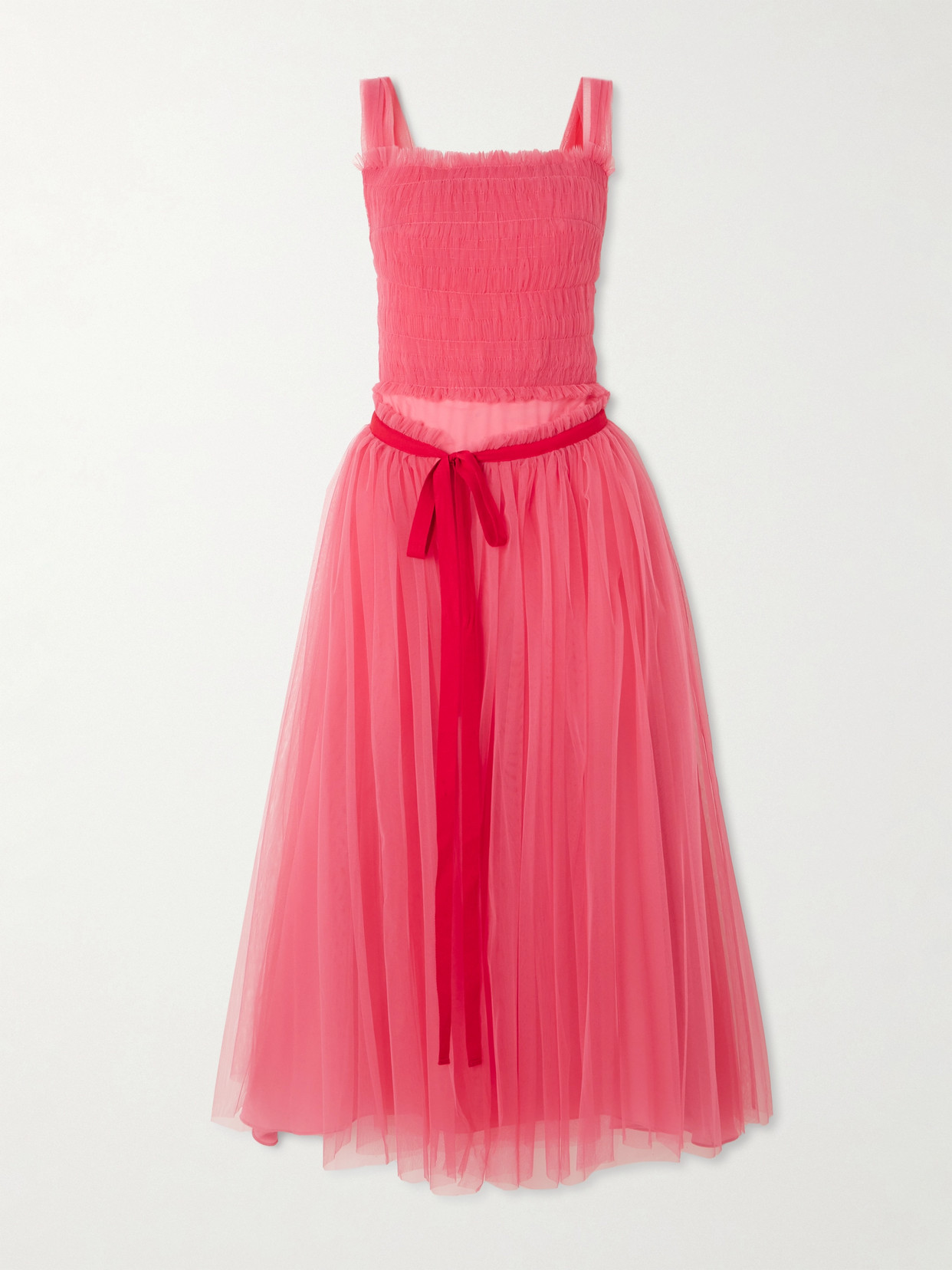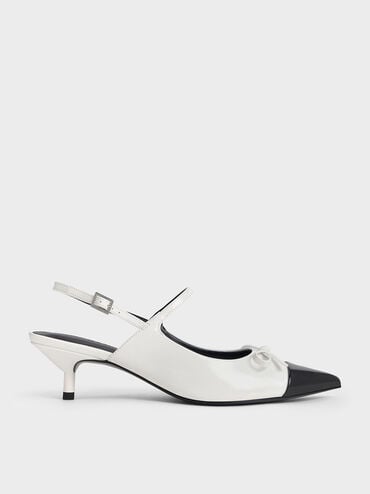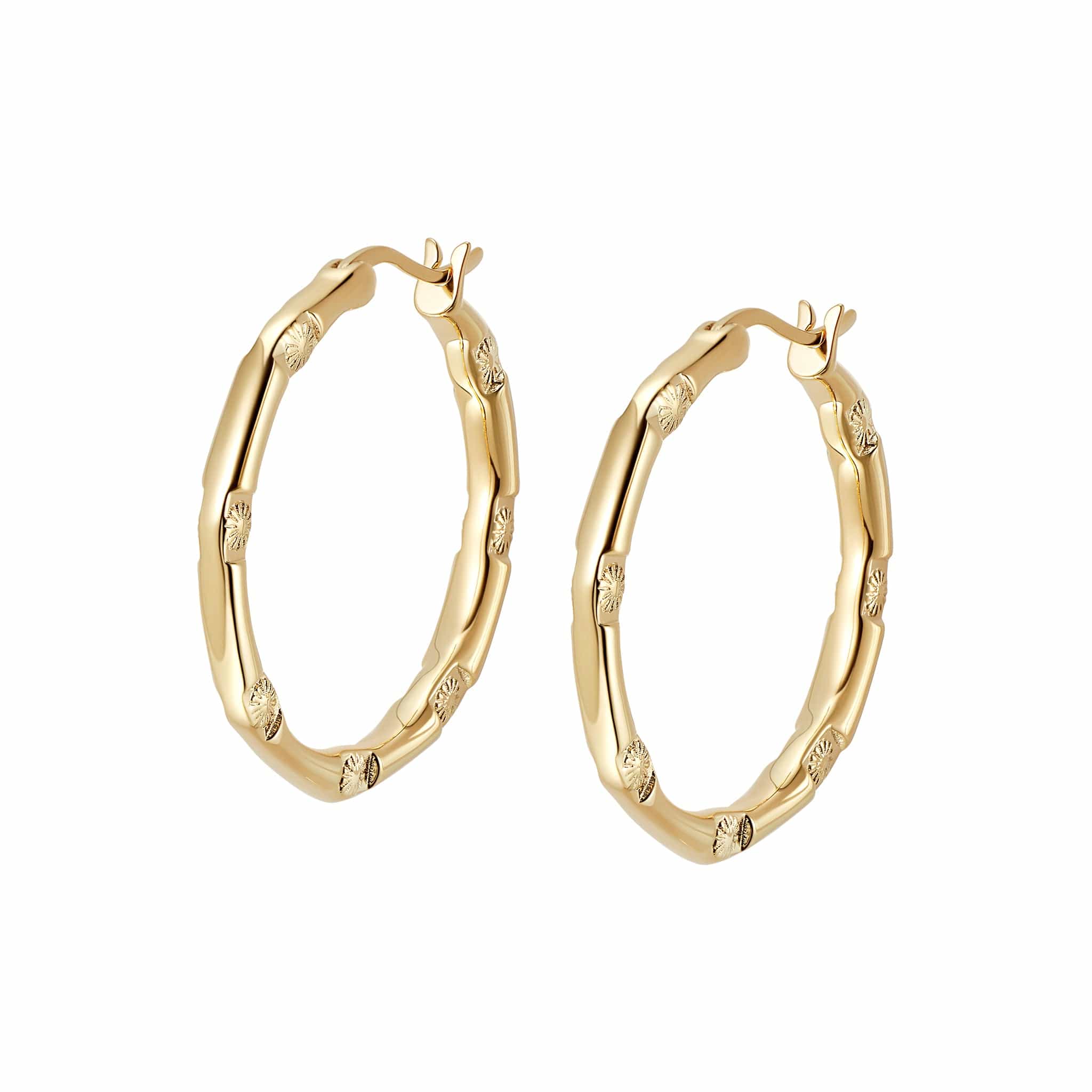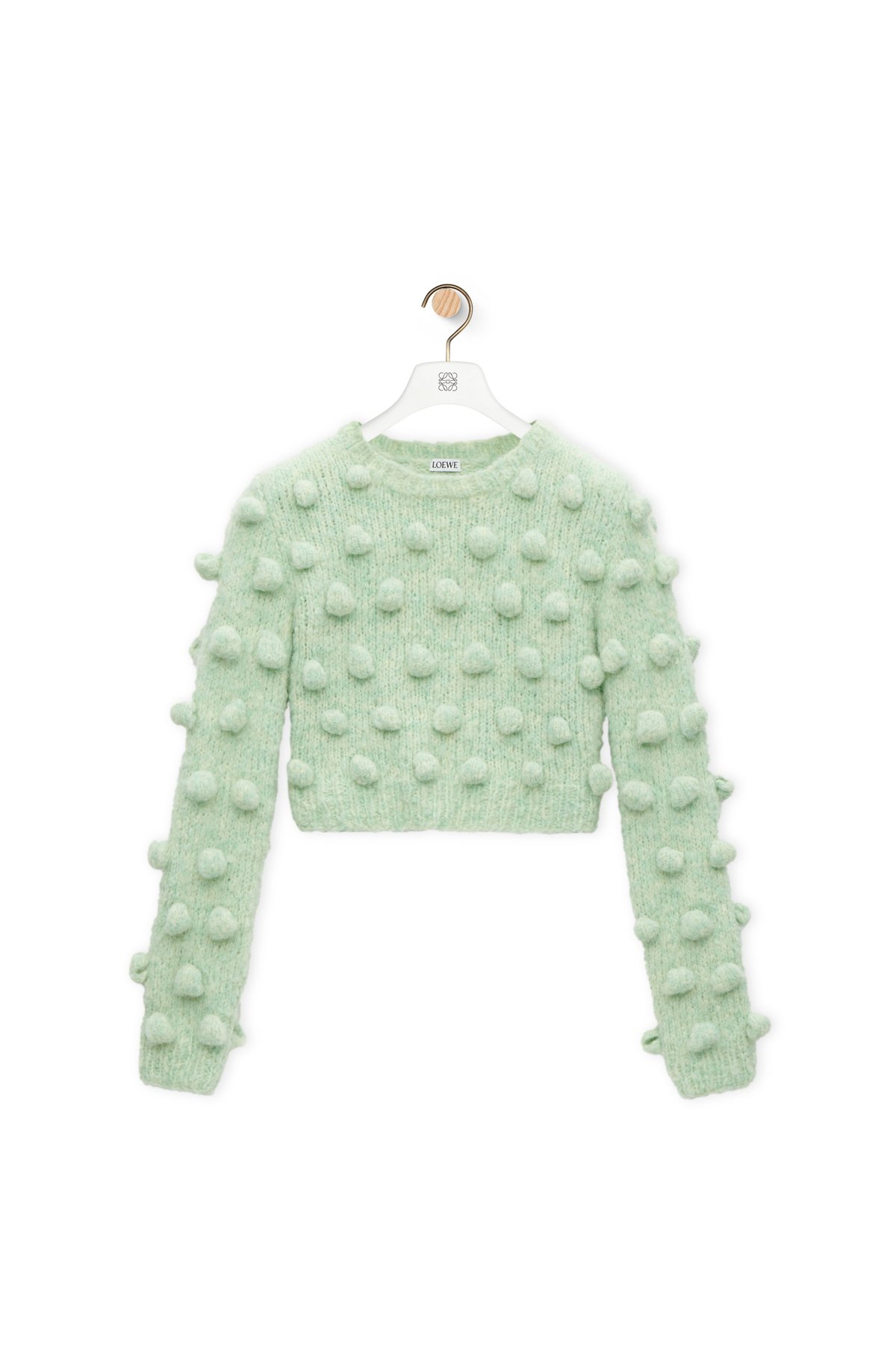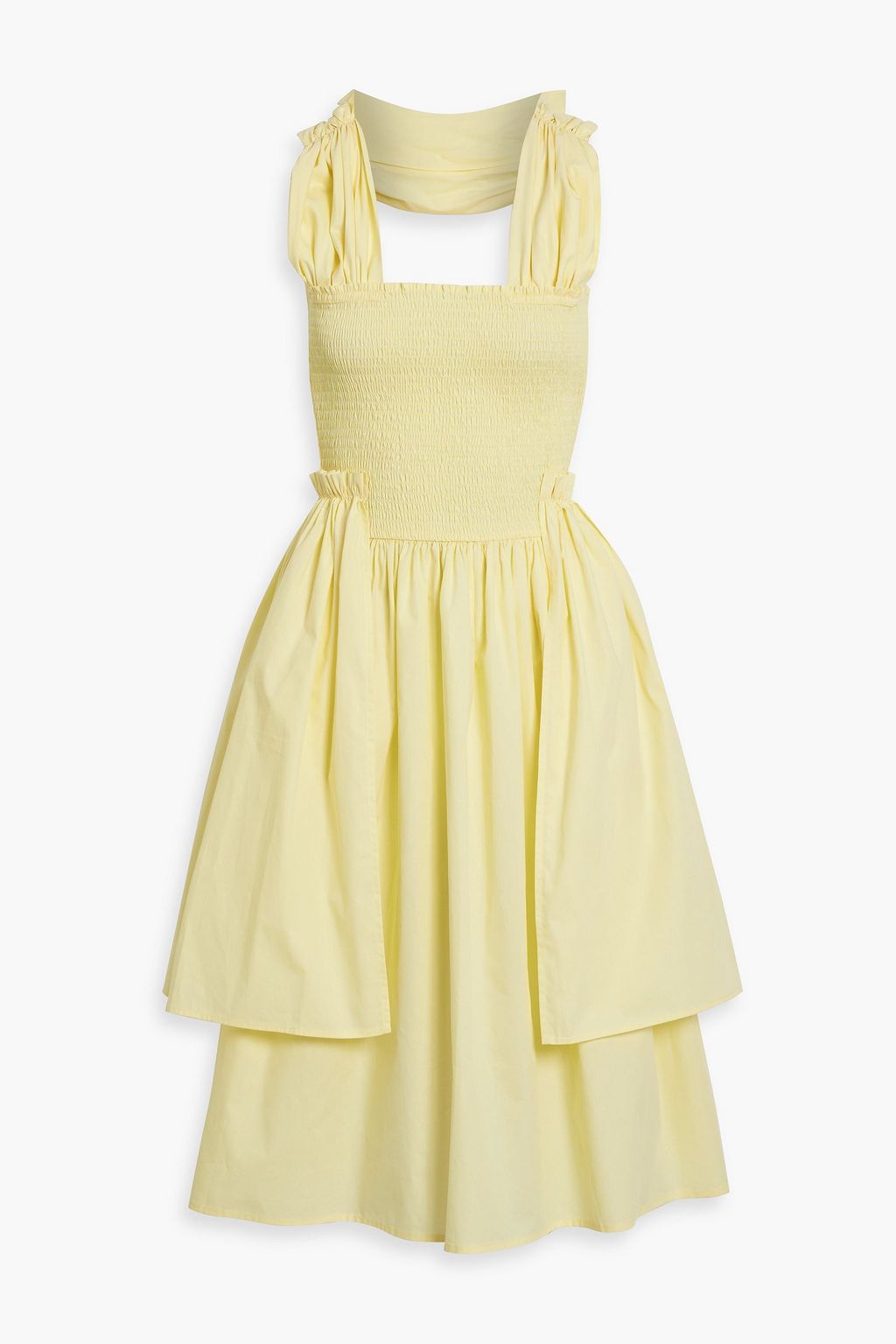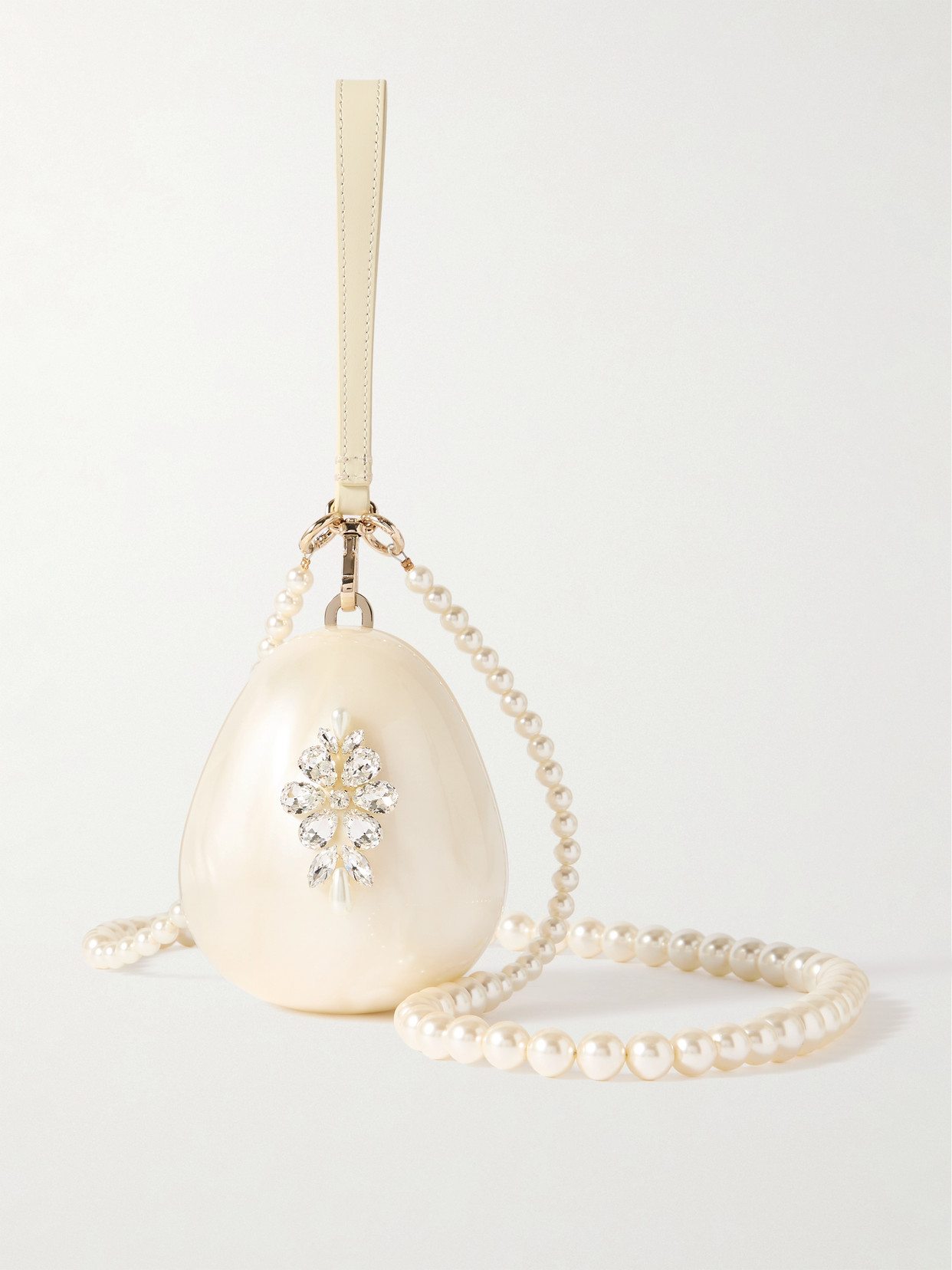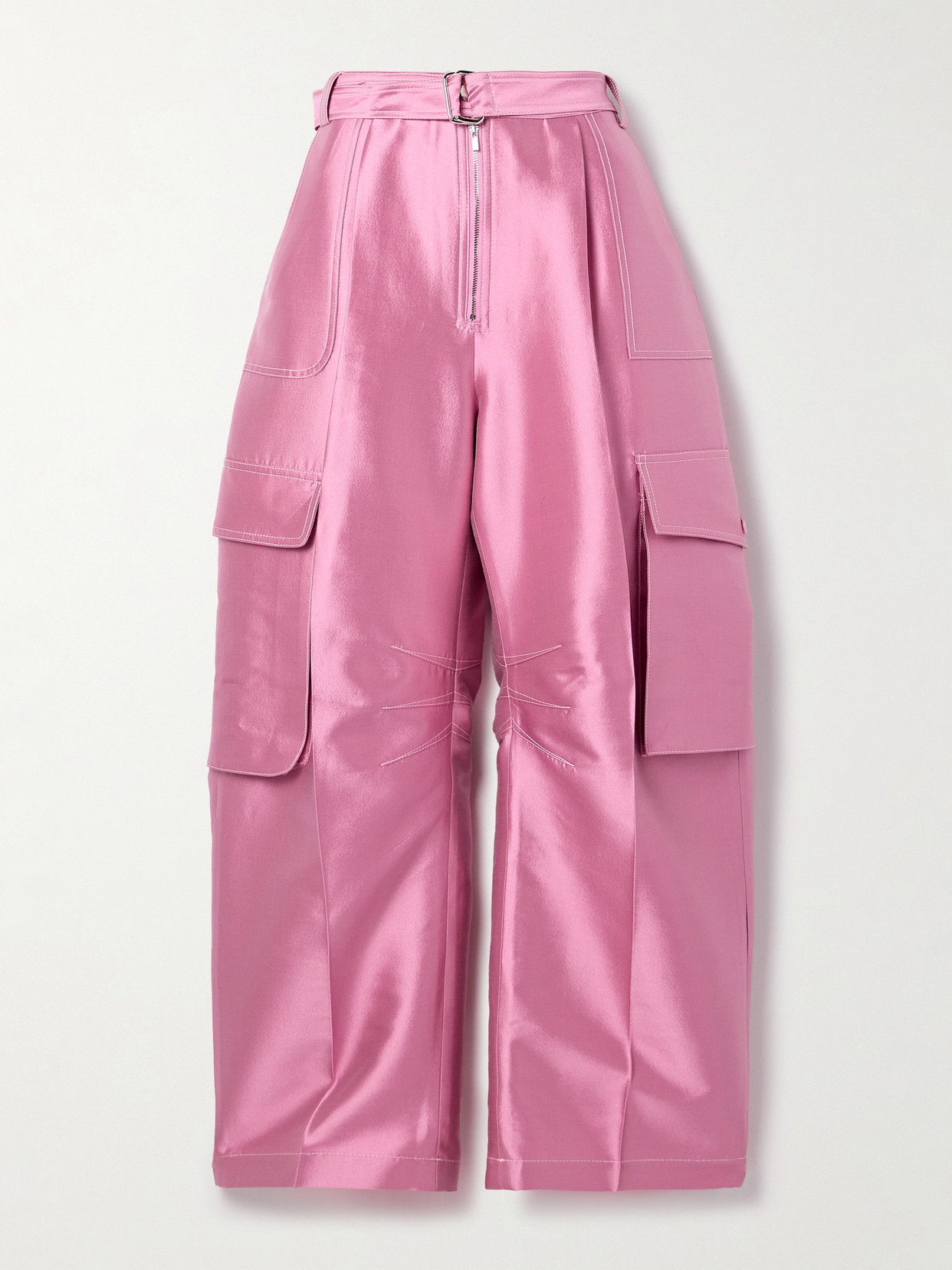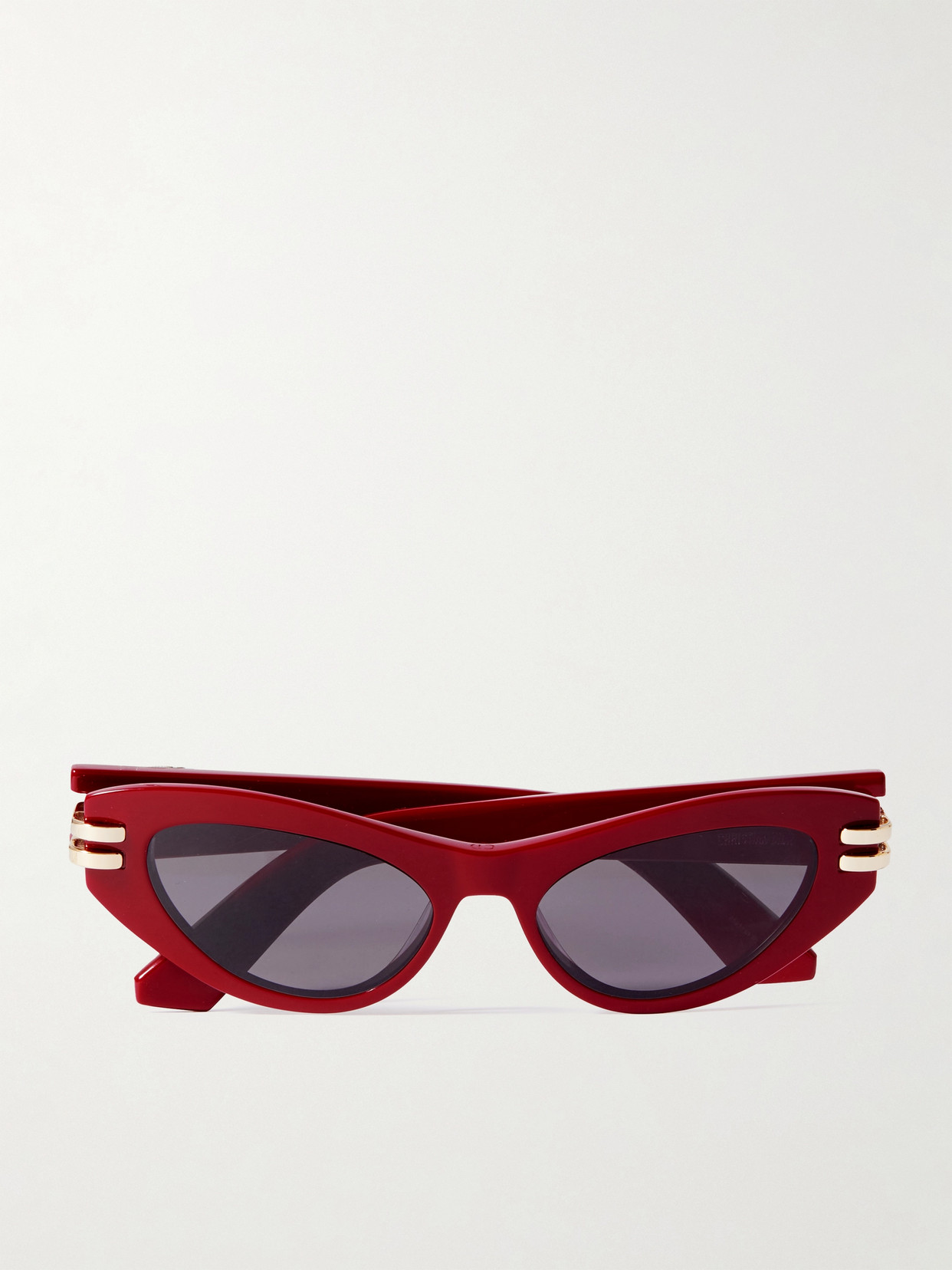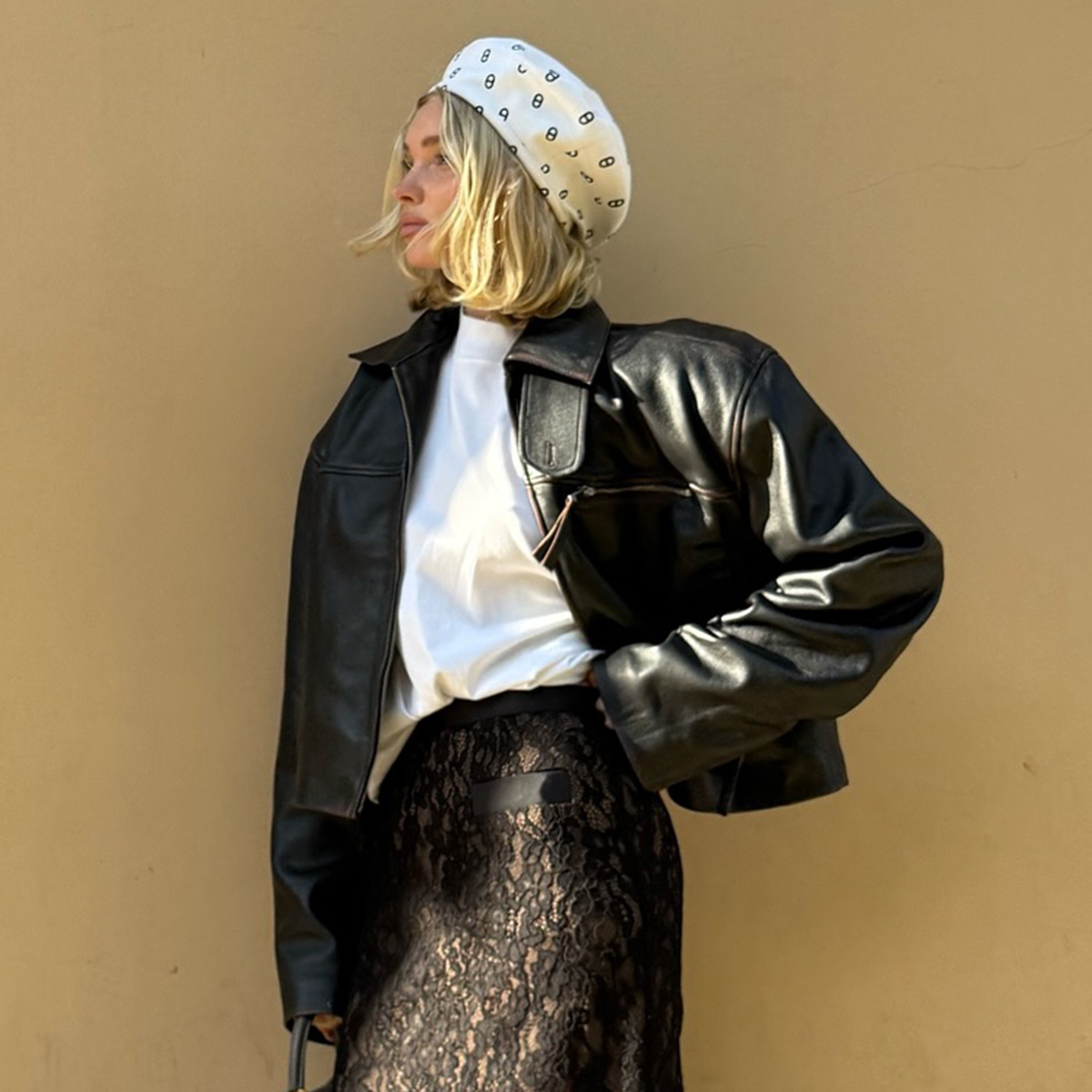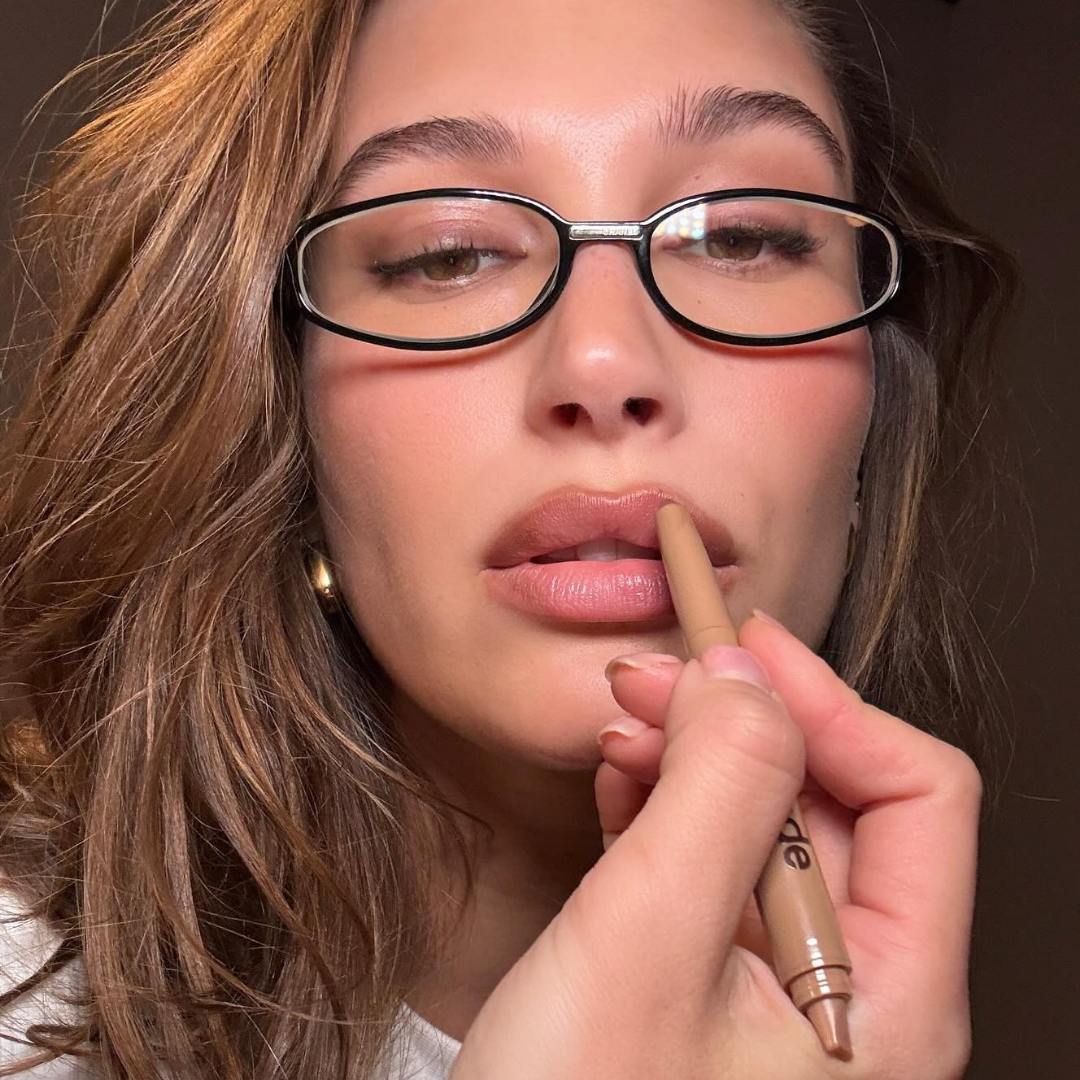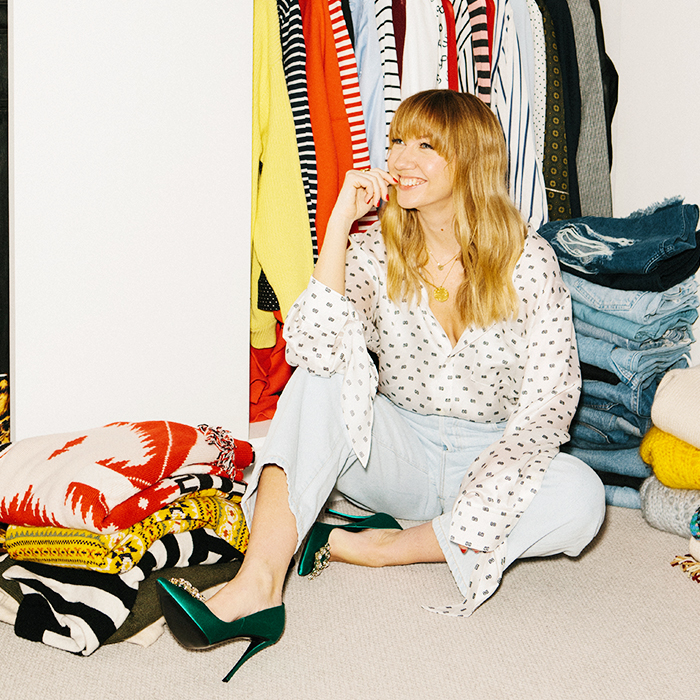Best Wardrobes in Britain: BEKA
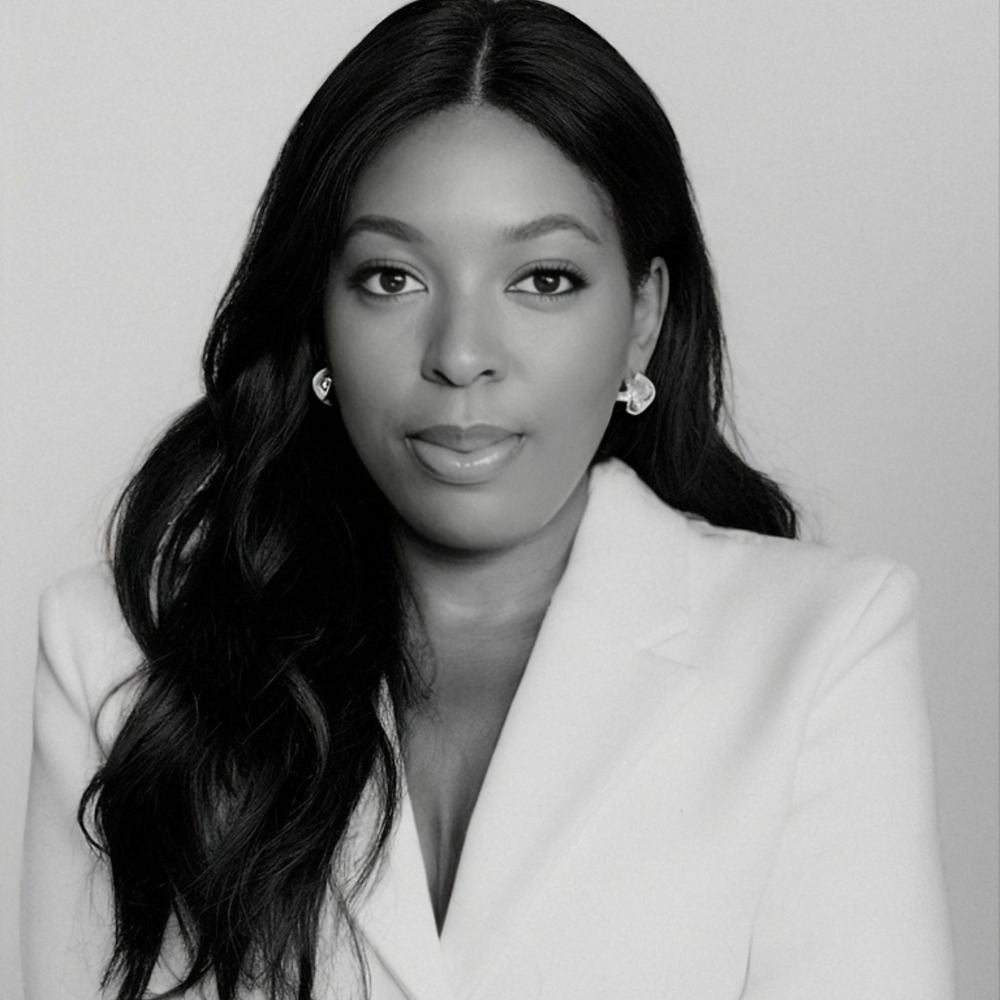
Most people would be daunted by the prospect of having team Who What Wear UK descend upon their house to look through their wardrobe, but BEKA isn't most people. First things first: she's on beverage duty, offering up builder's tea, green tea, cow's milk, oat milk… even Champagne. This seasoned host knows how to make people feel welcome, but it's her infectious energy and openness that make her the perfect subject.
For those who need an introduction to the singer/songwriter, you could start with her first solo single, 2020's ethereal "I'll Be There", but her most recent album, the soundtrack to season four of Apple TV's Trying is a particularly personal body of work. "It's supposed to be something you can hear and feel," she muses, feet up on the couch with Cleo Sol's Gold playing in the background. Between the candlelight, the ambience and the warmest possible welcome, BEKA is all about good vibes, and the same can be said about how she curates her space and wardrobe.
Her vibrancy and creativity come through in each nook and cranny of the house—glossy table lamps, thrifted furniture, an inviting tablescape—everything is meticulously put together with the same precision she applies to her music, but there's magic happening in her wardrobe too. BEKA knows dopamine dressing. Molly Goddard! Shrimps! SHUSHU/Tong! Not only is this one of the most eclectic wardrobes we've stepped into, but it's also one of the most exciting. With big, bold colours, dramatic silhouettes and a whole host of exciting accessories, it's no surprise that this wardrobe belongs to a performer (but no, she doesn't have a stylist).
Keen to find out just how BEKA built her enviable collection, we caught up with her after the series premiere of Trying to find out how an artist dresses for the studio, stage and self-care.
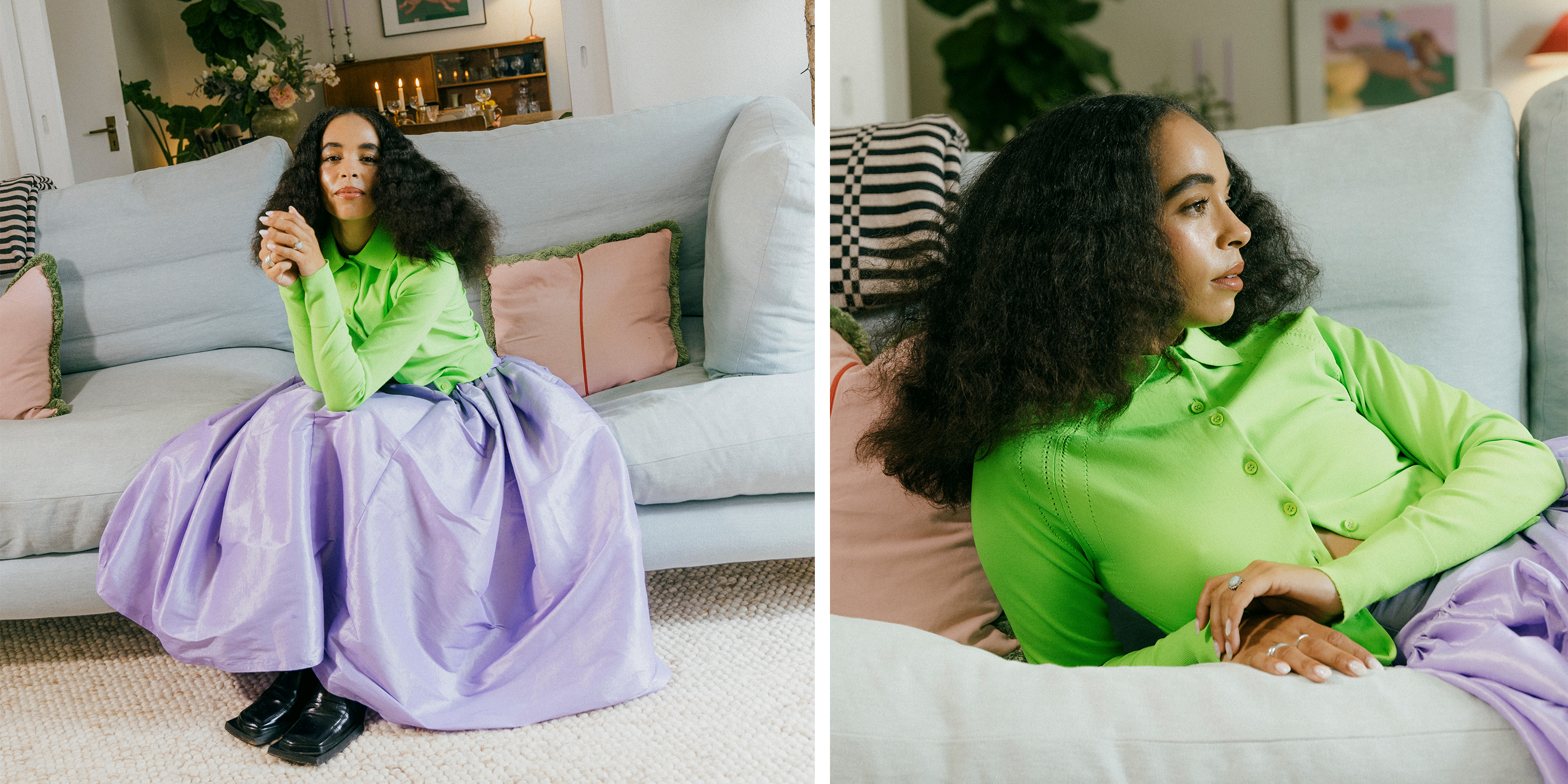
Where were you born and raised, and how did growing up in that environment influence your style?
I was born and raised in "Nottingham the Great", but neither of my parents were from there. Mum's from the West Indies, Dad was from North Yorkshire, and I think they were both very much '80s babies when I was born. They had a lot of style—those Will-Smith-Fresh Prince-era pigmented colours; rocking that eclectic energy. We always went to Saint Vincent to visit family, and I've now realised as I've been styling myself and putting palettes together that all my favourite colours are the colours of the West Indies. I feel like the flamboyant vibe from my parents and the island still resonates with me.
Because my parents were so keen on having our culture and family around us, I had all these pretend aunties, pretend uncles—loads of mixed-race people around me, and they were very intentional about making us feel like we had a sense of community. Later in life, we moved to the countryside (Southwell and Burton Joyce) after my parents broke up, and I remember feeling like that life was very disparate to my O.G. community, family-filled experience. I think it was there that I realised I had a bit more of an eccentric side compared to the "Jack Wills/Abercrombie look" which did not fit my body.
I'm always very grateful for that beginning because it allowed me to feel secure and seen and like I wasn't sticking out, so that later in life and my formative years I had this deep foundation of tribe and family. When you look so different to everyone else around you, you have to own it. My mum would make me wear the school trousers and follow that look, and I felt like nothing would ever fit me. My bum was way bigger, my hair wouldn't do what everyone else's did, so at that point it became fight or flight. It became my identity to acknowledge that I am not "the same", although I might have wanted to be.
What is your earliest fashion memory?
One immediately springs to mind. I had this leopard-print leotard and matching leggings, and my mum would always fight me with my hair every Sunday wash day. She would always blowdry it—which is so funny now because it's my dream hair—but my hair would come down to like, elbow length, and I remember just feeling angelic. This peak Scary Spice-era and I remember feeling [so] cool in that whole outfit, like I could really whip my hair, you know?
I also remember being in year six, having this purple top and looking at myself and thinking, "This shape doesn't work for you." It was the first time I'd ever seen a cut on myself and thought, "I don't know if this works." I went inside and told my parents, "I think we need to get rid of this." Maybe that's why I remember it—who thinks about that kind of thing as a kid? I mean, I'm still traumatised by that top.
If we looked through your wardrobe on any given day, what could we expect to find?
Always a strong silhouette and angles. I love big silhouettes and suits; I'm mad for tailoring. Pointed collars, angular blazers, shoulders, embellishments…Power pieces mean you don't have to think; you can just put it on. I'm not a great layerer. You know those girlies who can rock, like, a crochet vest over a tee? I don't really think like that. I think more in angles and statement dresses. My body really feels the clothing, and if I need to be held, I'll wear something that holds me. If I need to feel free, I'll wear something that channels how I'd like to feel.
My body really feels the clothing, and if I need to be held, I’ll wear something that holds me. If I need to feel free, I’ll wear something that channels how I’d like to feel.
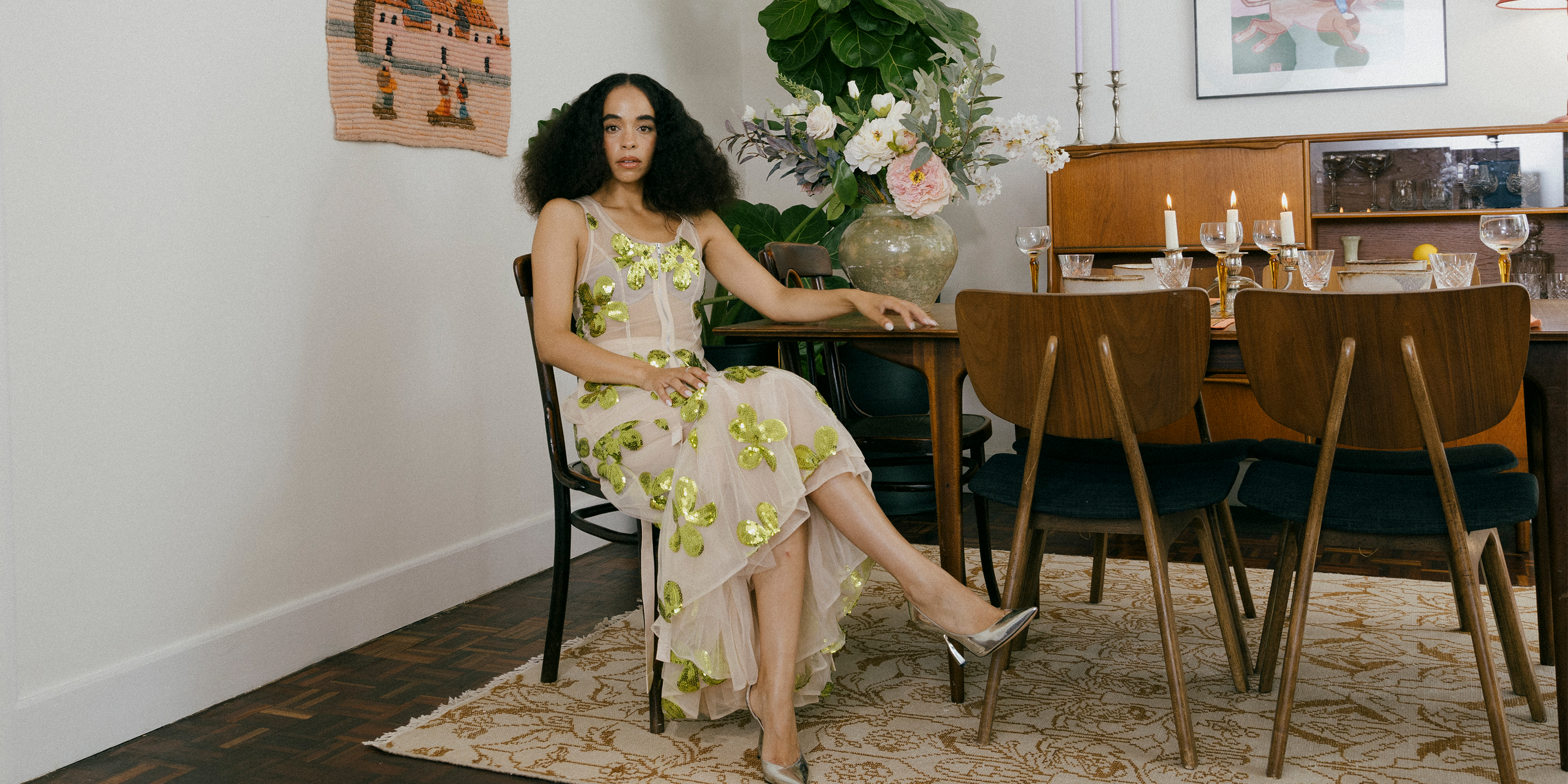
Which clothing brands best represent your style, and how has that changed since you were younger?
When I was younger, my mum and I had this one favourite shop called [BDF], and it was where loads of high-street shops would send their end-of-line stock. We would spend, like, £150 and get an entirely new wardrobe. All the labels would be cut out so you wouldn't be able to see where anything was from unless it had like, "Levi's" or whatever stamped onto the buttons. But I had no care for designers then, and I loved—and still love—charity and vintage shopping. Maybe that's where I curated my style. Now, I'm still not bothered about wearing a particular designer, but I do feel like I assimilate with artists who happen to be designers.
I love Christopher John Rogers, for example; I found him after Tracy Ellis Ross wore him. And she's, you know, one of the loves of my life. I'm mad for Ganni, I feel like they do a really good angle. Simone Rocha. If I had to wear one designer for the rest of my life, it might be Simone (if I could afford to do that). Bora Aksu for what he creates, SHUSHU/Tong and Susan Fang—both ultra-feminine but with really interesting embellishment and detailing, and of course, good shaping. But I love to wear and rep Tolu Coker. Tolu would be my forever forever.
Indulge us: what is one fashion faux pas you regret?
Oh god, there have been so many. When Janelle Monet came out with the amazing hair and the black-and-white outfits? My fashion faux pas was realising you can't just rip off someone else's style. It's naughty. And she was so iconic. Low-rise jeans are another! For most of my teens, I didn't even know there [were] high-rise [jeans]. I also went through a really big season of wearing a skirt as a dress, and not in a great way. I'd have to roll the fabric over and there'd be loads of bunched-up material. It's bulky, and you very much know it's not a dress. I did that a lot.
Oh, and maybe wearing a necklace as a headband, y'know, right in the front of my head? So, I'm pinning it on the sides, and, like, a flower in the middle of my forehead? Wow. Horrendous. That and my "I love Jesus" hair bobbles that I was given when I went to the Caribbean. I would rock them to school.
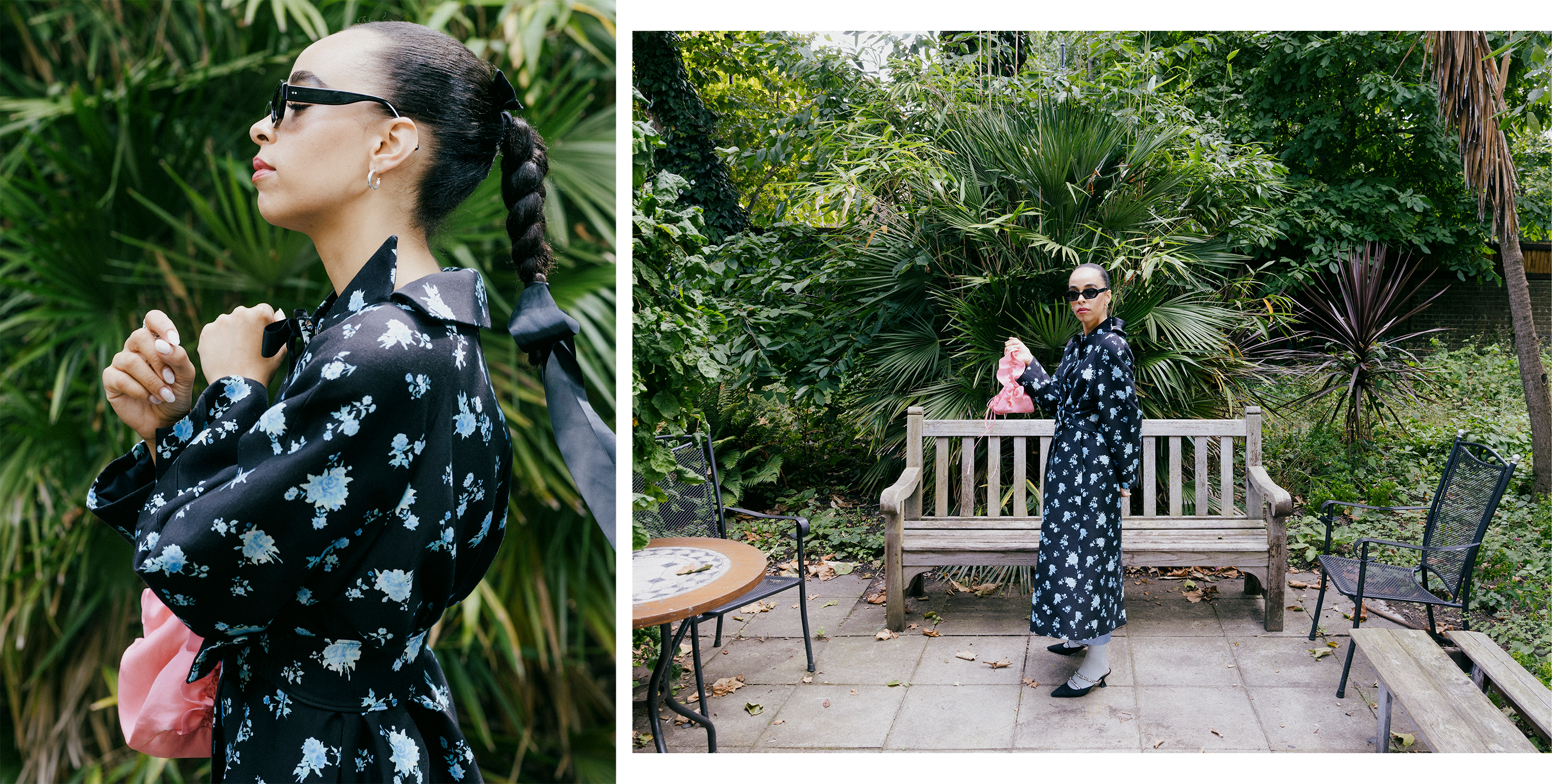
You're known for your avant-garde, fashion-forward style. How does fashion play a part in your creative process?
I feel like it's a secret weapon for me, reminding me and telling myself how to feel. I know this sounds a bit backwards, but you know when you see something you love and you want to wear it? And then you think, "Oh, will I be too much? Is this too dramatic?" [When you're] constantly thinking about what everyone else thinks? I very much dress for me. I had one of my besties over the other day and I was wearing this very expensive pair of trousers I'd been given, and she was like, "Why are you wearing that on a normal day?" I [said], "I do this for myself because I want to feel nice."
So it's, like, a self-love thing that helps me push out of the routine and just live life. I think it's easy to lose perspective of the fact that we're going to live the life we're in right now, and then it's done. So if there are things you love, things you want to do—do them. Set the table for yourself, sit down, use the nice glass you save for favourite and do it on a Tuesday because you're living it.
You know when you see something you love and you want to wear it? And then you think, 'Oh, will I be too much? Is this too dramatic?' [When you're] constantly thinking about what everyone else thinks? I very much dress for me.
As a singer-songwriter and performer, how does what you wear change for the studio, stage and in your downtime?
It really changes. If I'm at home alone, you will never see me in a full outfit. It'll be, like, a unitard or some kind of activewear, because when I'm home, I just want to be completely comfortable, but I might wear a red lip with it. If I'm only going to the studio, something very oversized again, and really comfortable and soft as well; I'm quite a tactile person in terms of materials. A lot of the time when you're collaborating with someone, you won't have an endpoint unless you're writing for something very specific, so often, it will be a day or two days, and you've got to mine yourself for art.
I want to write evocative things, and that process can be really hard, so I always bring my slippers to every session and talk it out. [I want to] connect with the human to see how they are and make the environment safe. We can be talking about personal things happening in life or potentially challenging topics, so that process can be quite anxiety-inducing if you don't have things that are your pacifiers or your little hacks that make you feel safe. It's signalling to them and signalling to myself that we're here to chill and create, and there are no wrong answers.
For stage, it's actually the exact same theory but just it looks different. I'm trying to tell myself, "You can let go [and] be wild, but you need to be comfortable." I like having something that moves with me or has sparkles or massive sleeves, so that when [I] do something, it looks bigger, and [I'm] not left feeling naked. I dress to energise myself, and it's like it's hacking into [myself] when I'm on stage.
If I had to just perform and I couldn't talk in between the songs, I'd be a very different performer. I really love that feeling of atmosphere, connection, safety, family [and] community vibes, so, during a show, we'll play a song, but then I'll say, "Hi, everyone!" and have a lovely chat. I'll get my mug out, I'll have a cup of tea, and then we can frolic and just help everyone come down from their day and live, laugh, love. I'm the same person in any space, it's just that the outfits are different for what I need.
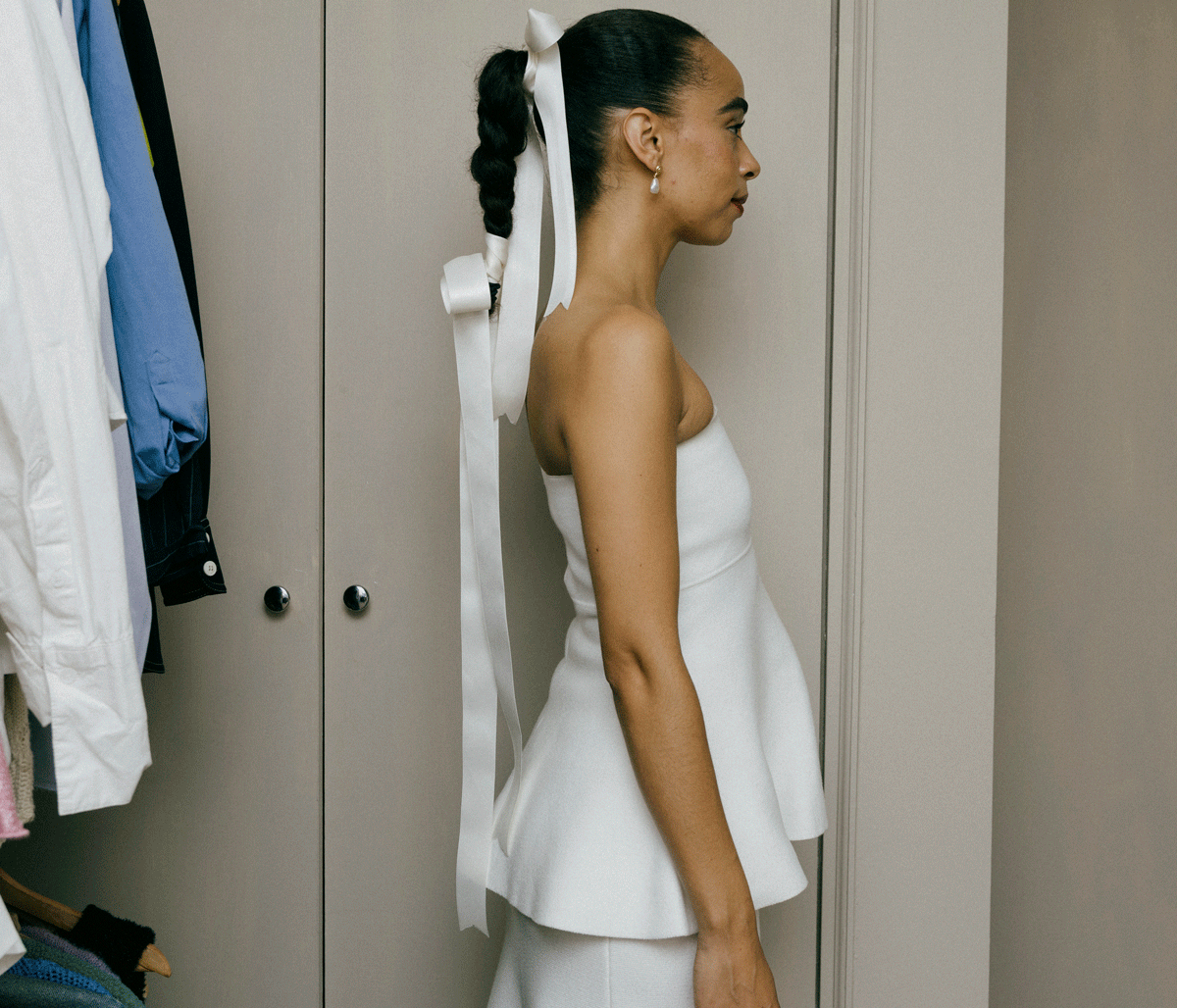
When did you realise what you wanted to do in your career, and was it an easy decision for you?
So, in college, I wanted to go into international development and advocate for people. I was kind of exploring law initially and then had a moment where I thought about everyone doing something creative like music, and I just knew [that I was] going to be doing [my] job and thinking about that instead. So then that day I found my degree, and it was a vocal music performance degree that had business to it, so I knew that academically I'd be satisfied, but also that it was something that worked within contemporary music.
It definitely prepared me in a lot of ways for what I do now, but it wasn't until much later after I'd been in a duo and after I'd done band stuff. I'd written for a long time and was doing backing vocals for this band, and we were away in L.A. when they asked me, "Do you want to do it?" I loved the cultural impact of music and how it moves people, but that felt way too terrifying. I think I just had a tonne of imposter syndrome and the whole thing felt too overwhelming. But suddenly it was like, you hear what you've been telling yourself your whole life and you know you've been wanting to do this forever but you didn't listen. That night in L.A. was so poignant and so freeing, to sort of meet myself again, in a way. That was the moment I felt I could do this and then I had a long time to be curious about what it would look and feel like, which was very empowering.
When you tap into your biggest desire, the thing you're most passionate about, I think that is the facilitator and the fuel that helps you make the leap. I didn't think I could write; I thought I was a poet. I'd always written poetry but didn't think I could write music. [In] all the formats I'd worked on, I'd think, "Oh, the person I'm writing with is better, I can never start a song, I can just [work] on it," until I realised that it's what I want to do the most. This is my thing and I hadn't seen it. It's mad, isn't it? We can just miss ourselves completely.
What is your proudest "pinch me" moment?
Maybe recently. I wrote this song for the soundtrack I've been doing [season 4 of Apple TV's Trying]. It was the last song we wrote in the process and I learnt so much about myself and how I write. Also, [I'm] neurodivergent and [I didn't] know until way later in life. It's not something I know much about myself because I've been forever trying to be neurotypical and deliver in a very specific way. So writing this whole album was like accepting myself and doing that with the help of someone else, which was unbelievable. Hard, but really empowering.
When we got to this final song and we both just felt like we would smash it, Tobie [Tripp], who I was writing with, was sitting at the piano and everything I'd been feeling came up and out. Him playing piano, me singing—no shame, no fear. And a few weeks later, I went away and started therapy for the first time. It was like my subconscious had written the song, and [it was] a real "pinch me" moment to have written something that could unlock so many other things.
Whenever you make anything you often feel like it could be better, but this album definitely feels like it's done. I had this idea that ended up being a song called "Your Skin", and it's another "pinch me" moment to hear people tell me that it gave them words to something they didn't have, that it felt really resonant. Those are the most precious things—for someone to have something good about themselves in their head because you've made it catchy for them to remember and it speaks to their soul, that they can love themselves a bit more because of a little phrase you found.
I threw a little listening party with my family and friends and that was one of the most incredible nights of my life. And it's hilarious because I said to the room, "Guys, I know it's really weird to write something and then force you all to come round and listen to it." I know it sounds so morbid, but when your life is done, it's just marked by the moments you've chosen to celebrate, so I wanted to mark it with the people I love. I was going to play, like, two songs, maybe three, and then as we were listening and I was talking about them, my dad—who inspired so much of it—was in the room [with] all of the collaborators, the [female lead] Esther [Smith], the director. Having all those people in the room was quite surreal. I felt proud then, and we ended up playing the whole thing because the room was like "Shut up and just talk to us about it!" That kind of love is mental.
Whenever you make anything you often feel like it could be better, but this album definitely feels like it's done… It's a "pinch me" moment to hear people tell me that it gave them words to something they didn't have, that it felt really resonant.
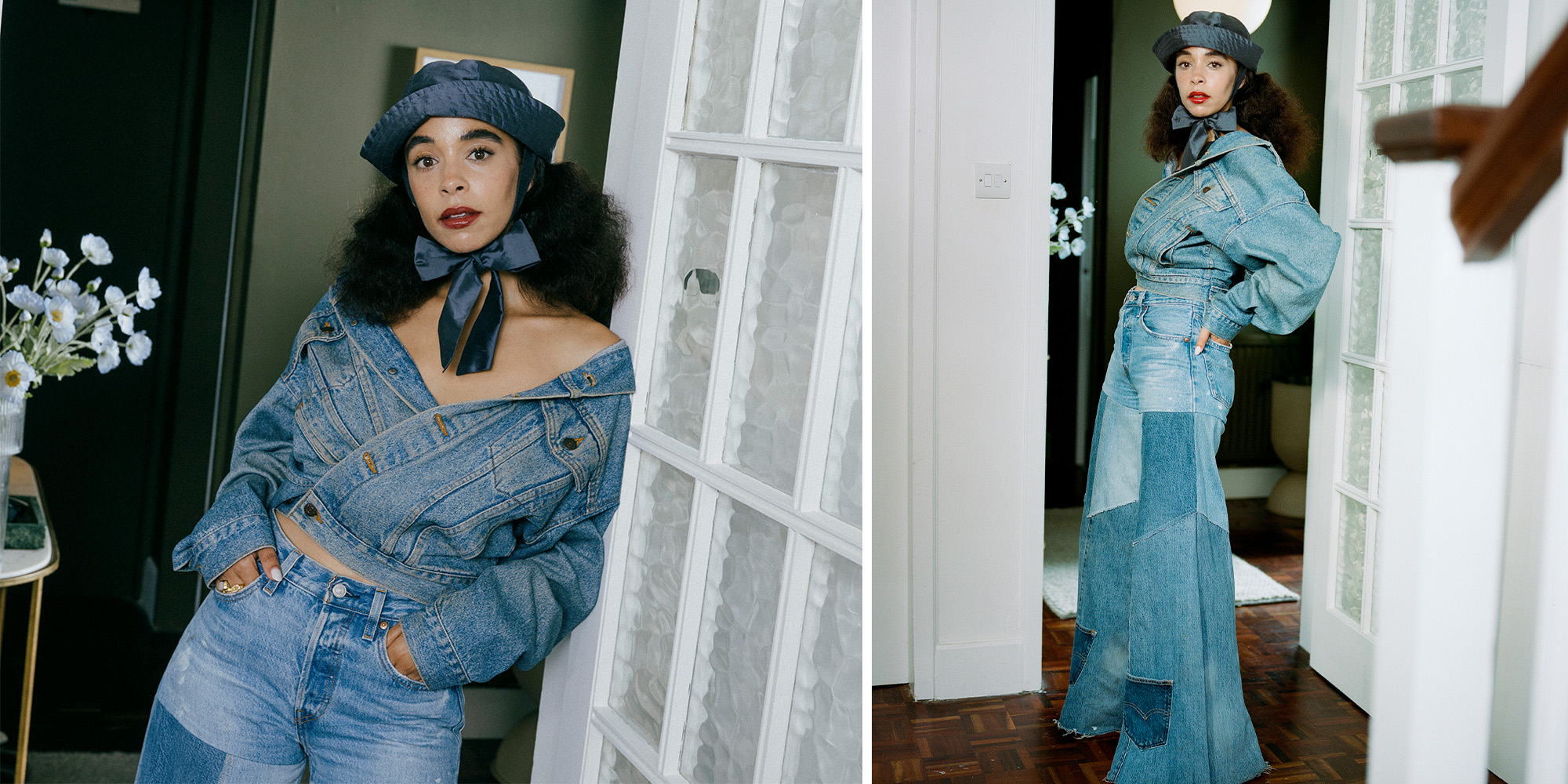
You’ve spoken openly about how the subject matter of the show sat so closely with you as your dad was adopted. As soon as you’re presented with such a major opportunity and one that is particularly close to your heart, where does the inspiration come from, and how do you know when you’ve done it justice?
This project was quite special because it was very collaborative: we were all in a WhatsApp group with the director, the producer and the musical director. What is very precious is that each song is written for a montage moment that happens at the end of each episode. It's got all of the emotional beats of the episode in it, and so you write an original song for that. Ellie Heydon, the director, spoke through what she wanted for each episode. She'd say it needed to feel woe-filled or longing or grieving—whatever it might be, and then we went with what we felt that would mean. Tobie and I would read the script, write down all the key words, and see what we felt.
When I told my family I had a soundtrack opportunity, they were all gassed because they knew that was, like, the one dream for me. The night I got the call to say I got it, I rang my dad and my brother together and we ended up talking for about two hours, just asking Dad about all these stories we already knew about him being adopted, and this box of all the things he has from his life because he was adopted when he was six weeks old.
Hearing that and seeing this sixty-something-year-old man speak so vulnerably is so moving. He started to watch the programme and he's very proud and very awe-filled at the process. I think he'd forgotten that I was going to be on at the end of the first episode, and my stepmum was filming him. As you see him realise it's playing, he just starts weeping, and I'm bawling my eyes out watching this video of my dad crying his eyes out! He always says that I was his first blood relative that he knew, and from a universe perspective, it's been a really beautiful family thing as well.
Who are some of your favourite people you’ve met along the way, and what did you learn from them?
HONNE are, like, the O.G. ally in supporting everything I've ever done. These two guys have always backed me, given me time and talked to me on the phone about things I'd usually feel really stupid [about], like business [in] music, law, accounting, setting up a studio—all of the things I thought I should know how to do. They would never make me feel like [an] imposter. [Producer] Junior Alli-Balogun was also someone who, when I was in a duo, always showed up. He saw our show because we were supporting someone he was playing percussion for at the time, and he loved us and would pay for us to have some studio time. He spent, like, £400 on us and at that time, to us, that was like 40 grand.
Later in life, he connected me with the Sault Project, and through that, I met Cleo Sol. I felt so inspired by her journey last year whilst I was writing this album. She had grown into this really artistic, boundless sphere of "I don't care what's going to sell" and tender vocals, which is much more like how my voice works, so I found her journey really inspiring. Just watching her from the sides was wild, she had this real innocence to her, like a child experiencing things for the first time.
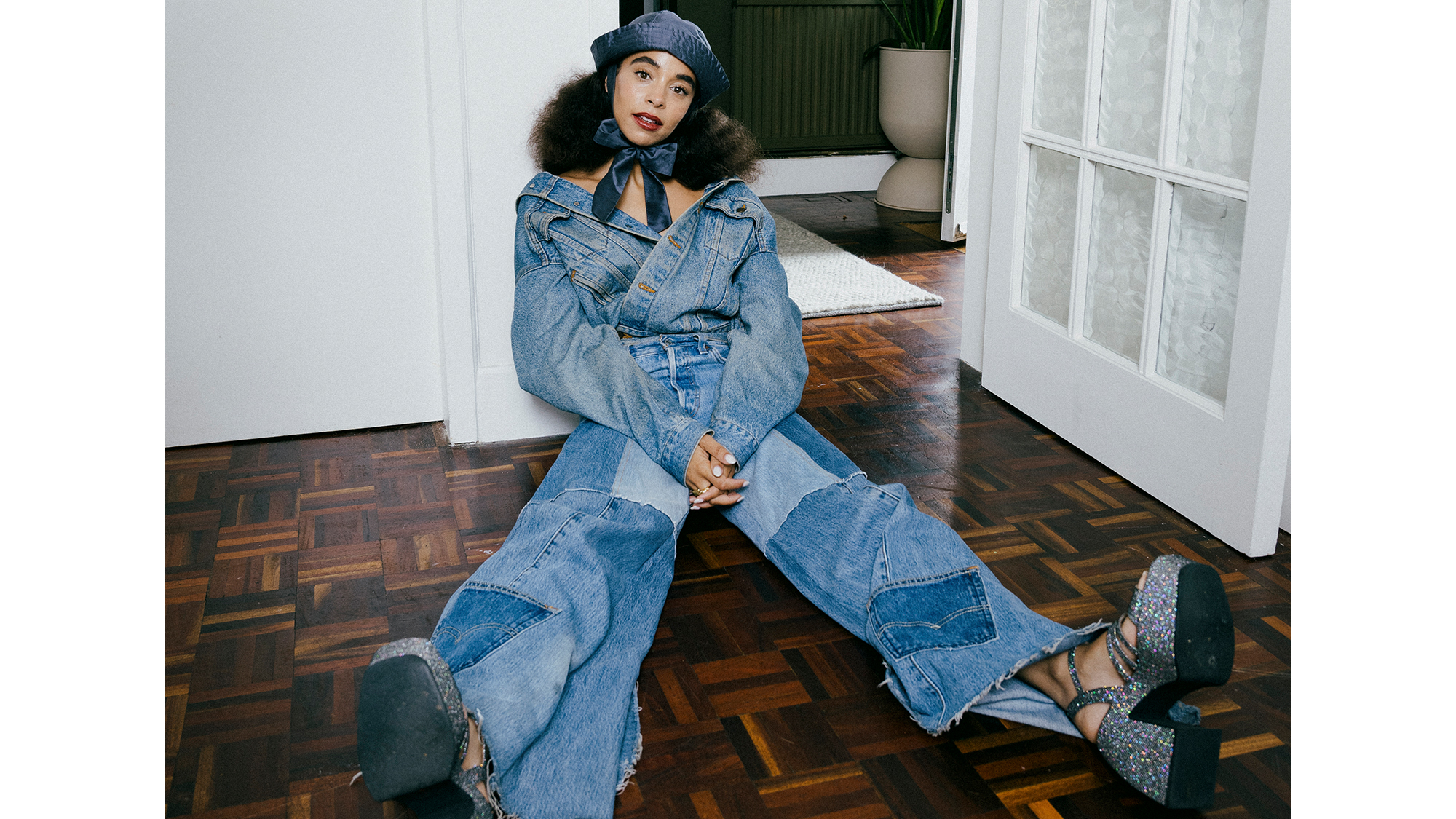
She's not afraid to have wonder or to just get gassed and start dancing. Another friend, [singer] Joel Baker, is someone who, all through my early twenties, would take me for coffee and we'd buy flowers together. He'd listen to me be like, "I don't think I can do this", and still, even now, he asks me "How's your soul?" I'm like, "I don't know!" Always ever the father. [He is] a really beautiful human and unbelievably talented.
Who is your dream collaboration and why?
There are so many. Maybe it would be someone like Cleo Sol because I think I need to write with her and be around her mind. She works so much with Inflo, her husband, and I think it would teach me so much. "Know That You Are Loved" was in my head this morning and I just started bawling my eyes out, and the next thing that came on was "Promises", and I was like, "As if you put these words in the world for me to have." Obviously, I also want to say Stevie Wonder, and of course Alicia Keys, because she's the GOAT who basically raised me. Outside of those stratospheric pop stars, I think it would be someone I just have a deep admiration for.
What does a typical day look like for you?
Since completing this album I've been in a real state of "Who am I? What am I?" and I'm now realising it's a very classic post-project state. I'm just trying to live more as an artist and less as a CEO-admin-human; I'm trying to give more space and weight to allow my brain to be a bit weird so I can create what my day will be. I get up and make a coffee, sit and journal. Go out for an hour's walk, get the 10,000 steps in, come back and catch [up on] a bit of admin. Every day is different. The afternoon might be a session with someone or it might be a shoot, and for a long time, it was touring. I supported Honne for a year and a half on their world tour, and that kind of chaos is great for me because I have a very strong sense of routine for the old ADHD brain. The difference and the exploration stuff every day has really worked for me.
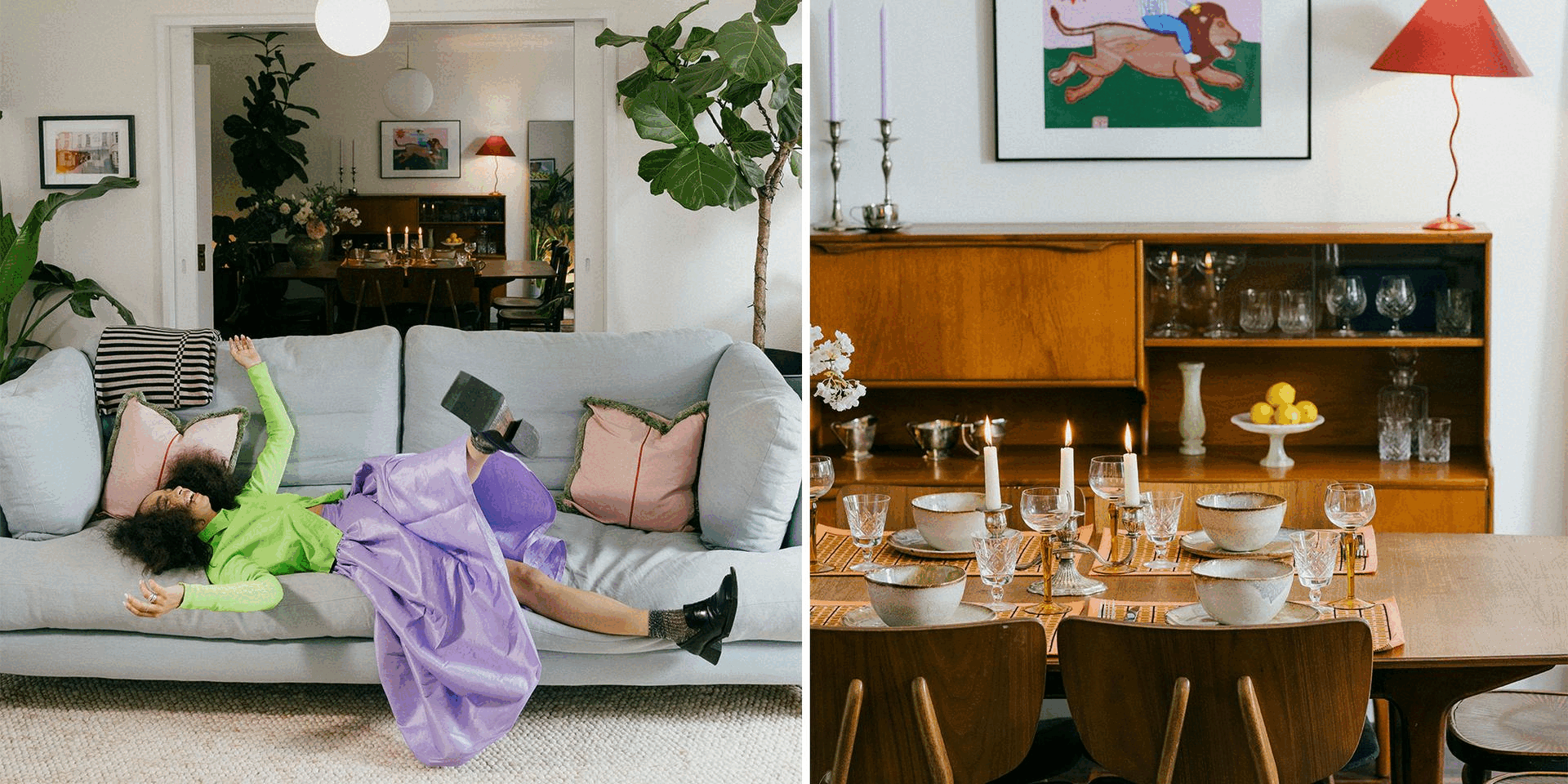
Who are your ultimate style icons?
I love Tracy Ellis Ross—that's my girl. The suits, the hair, the everything. Who else do we love? Iris Apfel! Love, love, loved her. I'll often Pinterest fabulous old ladies in New York; they are just the best. I'm quite a maximalist dresser.
If you could wear one outfit for the rest of your life, what would it be and why?
I know this is really boring, but if it really has to be for the rest of my life, I own this H&M X Mugler dress. It's black and a high-neck, pinafore shape, very nipped in at the waist, and the skirt has this massive, angled hip, mini length. I love it because it's so interesting to look at. The silhouette's great but it still works with everything. It's delicious. I'd wear it with some white socks, maybe some kind of black shoe with a bit of embellishment, a little black bag, some pearls, black sunglasses and hair in a triangle. That's it, done. That's going to work for life, isn't it?
Are there any pieces in your wardrobe that are particularly sentimental to you?
Simply for the journey alone, for my first ever shoot I wore a yellow tulle top from H&M. It has such cute bows on the shoulder, and it just feels super sentimental because it was an amazing, memorable day. I just wore it with a pair of jeans but I'll never get rid of it because [it's] a nice marker of where I started out. Also, my grandma gave me a pair of opal earrings and I have an opal engagement ring; it's the only jewellery I think I have from her. She is a beacon of resilience.
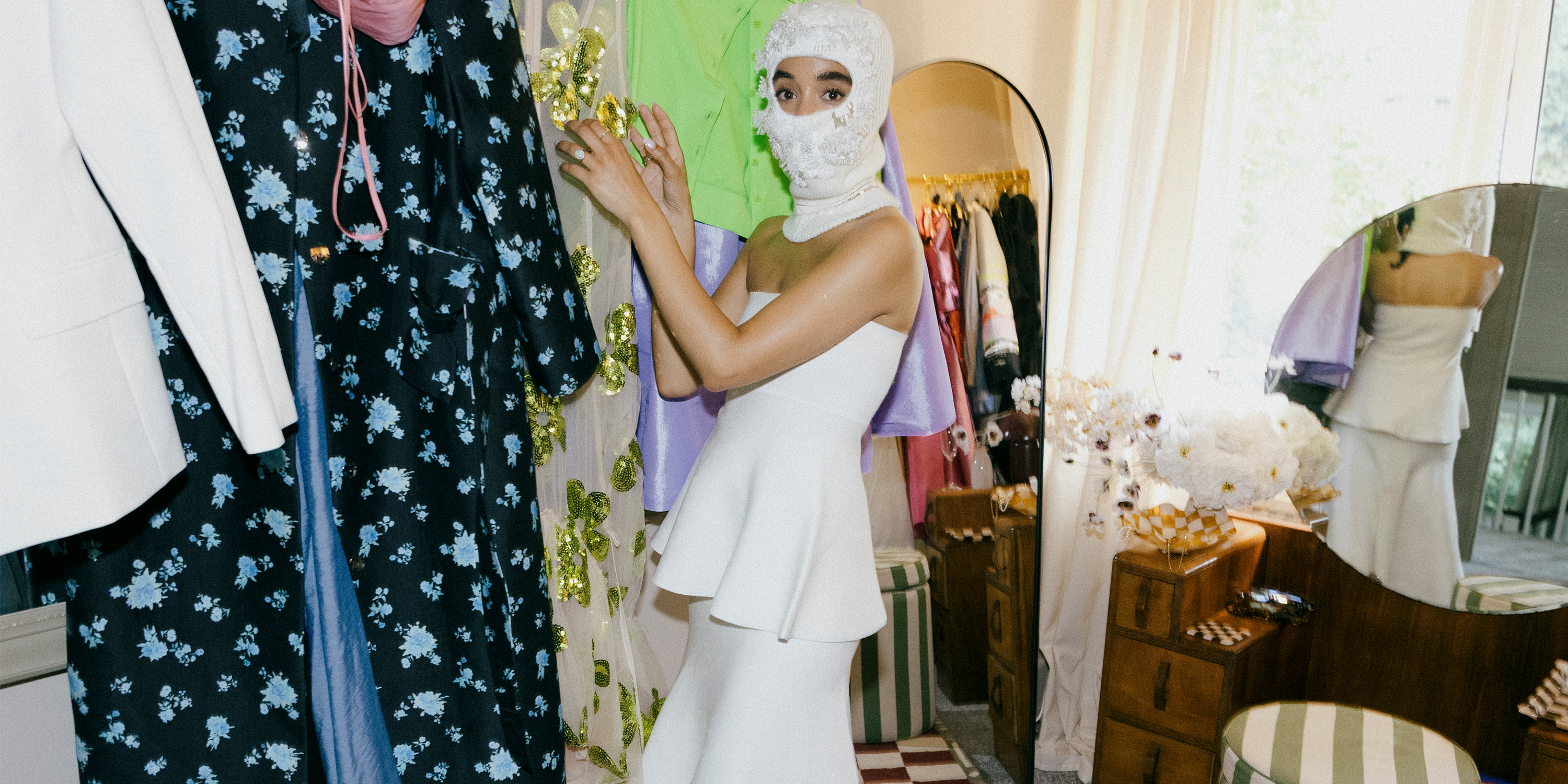
What’s the best piece of career advice you’ve ever been given?
It was to always have a "Why". If you have a sense of "why" that resonates with you—"Why are you doing what you do? Why do you exist? What's your fuel?"—you can run everything through that and it will work. Either you say no or you say yes, but it's your why that drives you. It's a big question, but once you've worked that out it's what you do next. In my music, if I think, "Okay, why am I making this?" I remember that I make music to connect, to facilitate and for people to feel a bit more known and that someone else is feeling it too. I've found that so helpful.
What can we expect next from BEKA?
Firstly, I'm writing a visual album. It's going to have music videos directed by me and a narrative; it's going to sound fantastic. I think the fear of an "album" was always there in terms of why the hell would anyone want to do that, to have to stamp who they are and make their absolute best work. But now I feel like, "Oh, wait, an album is just a snapshot of art for who you were then in that moment, and it doesn't have to be perfect." That feels very compelling.
Also, it's podcast time! I just feel so curious about everyone and everything, all our human experiences, that globally, we all feel love, joy, identity—the same universal things. I want to be able to ask [these questions] universally, so I'm going to do that with my bestie. Then, a show. I've always wanted my shows to feel like an experience, so curating and cultivating some experiential new shows because I haven't done a UK show for a while. Whilst writing this album, I knew it would give us a moment afterwards with these amazing songs that are so orchestral and have such amazing collaborators, and for one of those collaborators to speak in the show. So, we held off from last year and have pushed it so that we can have those bigger moments. Other than that? You know, just perfecting mirror selfies.
Thank you for having us, BEKA!
SHOP BEKA'S STYLE:

Remy Farrell is a London-based fashion editor with 10 years of experience covering fashion, beauty and lifestyle. After graduating with a journalism degree and working on the fashion teams for titles such as Grazia, Elle, and British Vogue, she moved into the luxury e-commerce sector, working as fashion assistant at TheOutnet.com After expanding an assisting and styling portfolio that includes talent such as Gigi Hadid, Victoria Beckham and Miquita Oliver, she ventured into beauty, compiling reviews and diverse beauty content. In her role as fashion editor at Who What Wear, Remy is interested in discovering new brands to share with the WWW UK readership, and loves uncovering hidden gems to make shopping accessible to everyone.
